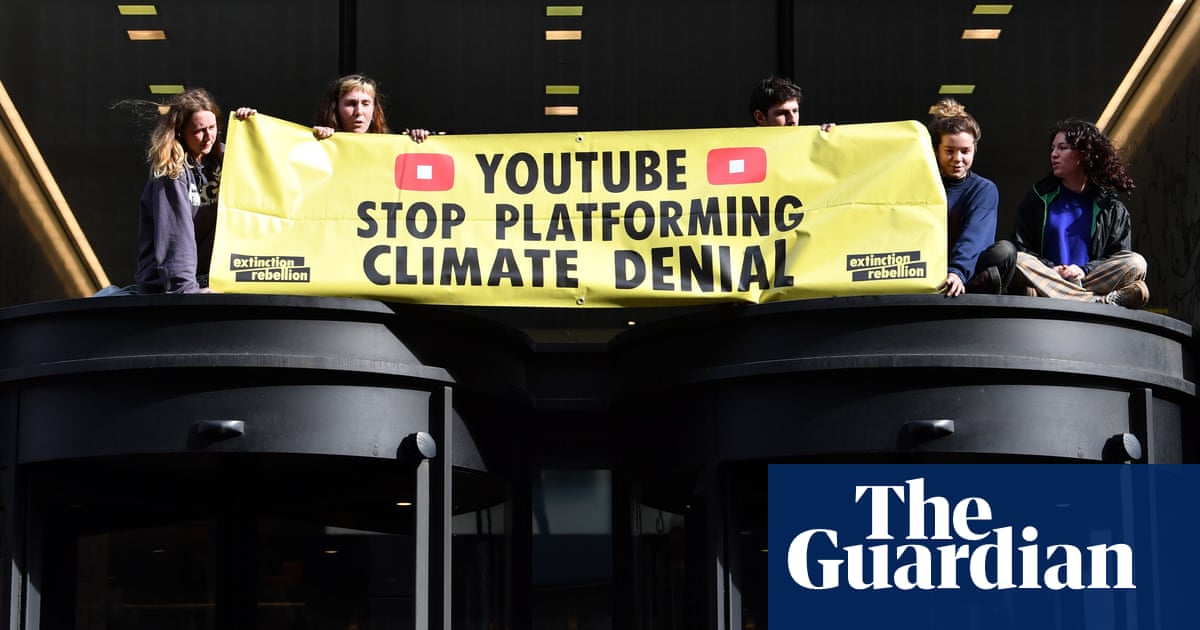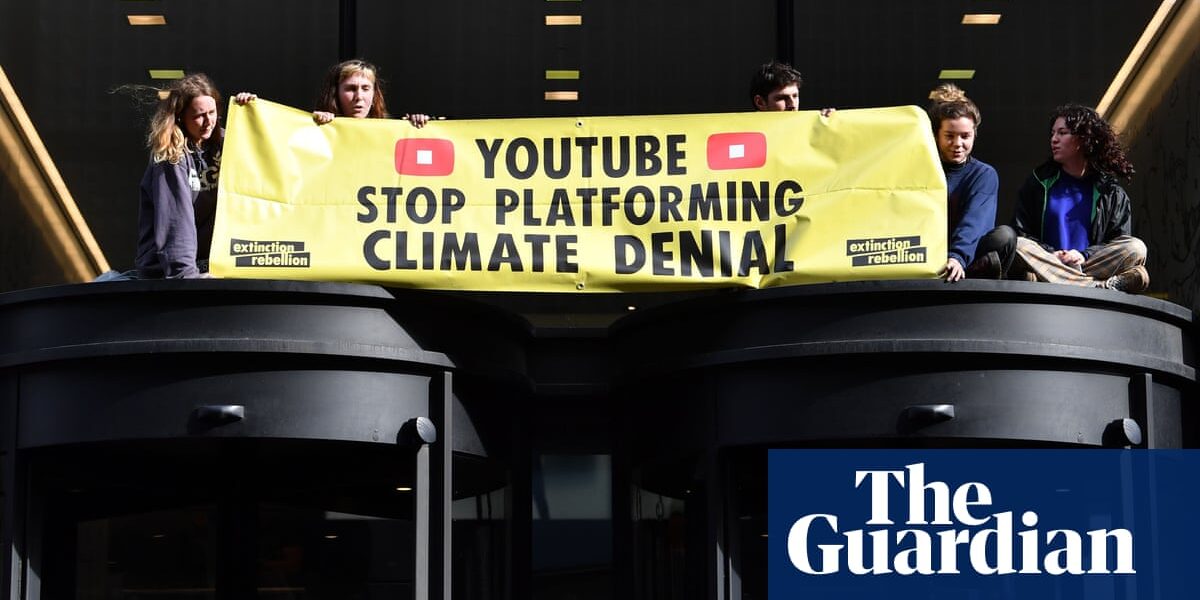A report revealed that one-third of teenagers in the UK think that the severity of climate change is overstated.

According to a recent report, one-third of teenagers in the UK hold the belief that climate change is being exaggerated. This belief is being reinforced by the proliferation of YouTube videos that promote a new form of climate denial specifically targeted towards young individuals.
In the past, many individuals who denied the existence of climate change argued that it was not occurring or, if it was, that humans were not responsible. However, a recent report by the Center for Countering Digital Hate (CCDH) reveals that the majority of climate denial videos on YouTube now promote the notion that proposed solutions to climate change are ineffective, that climate science and the environmental movement can’t be trusted, or that the consequences of global warming are actually positive or inconsequential.
The CCDH researchers collected a collection of written records from 12,058 YouTube videos about climate change that were uploaded by 96 channels over a period of almost six years, from January 1, 2018 to September 30, 2023. They also included the findings of a survey conducted by the polling company Survation, which surveyed a nationally representative group of respondents in the UK aged 13 to 17. The survey found that 31% of respondents agreed with the statement “Climate change and its effects are being purposefully overexaggerated.” This percentage increased to 37% among teenagers who were heavy users of social media, meaning they reported using one platform for more than four hours a day.
The report released on Tuesday indicates a change in perspective from the previous belief that climate change is not occurring or not caused by human activity, to a newer denial.
In 2018, there was a significant increase in the number of videos on YouTube that deny climate change and challenge the scientific evidence and proposed solutions. These new narratives made up 35% of all climate denial content, but now make up the majority (70%). At the same time, the proportion of older denial content has decreased from 65% to 30% of all claims.
The authors of the report suggest that this change is due to the increasing acceptance and difficulty to dispute the scientific evidence, leading those who oppose climate action to discredit the proposed solutions and individuals advocating for it.
The CEO of CCDH, Imran Ahmed, stated that scientists have successfully educated the public about climate change and its origins. However, those who oppose taking action on climate change have shifted their tactics to undermining trust in potential solutions and the scientific community.
British politicians on the right side of the political spectrum have spent years trying to convince the public that achieving net zero emissions is not feasible or worth the cost. They have also spread doubt about the effectiveness of technologies such as electric cars and heat pumps. Recently, Prime Minister Rishi Sunak voiced concerns over the cost of climate solutions and has backtracked on net zero goals.
According to the Pew Research Center, teenagers aged 13 to 17 are the most frequent users of YouTube compared to other social media platforms. 71% of them use YouTube on a daily basis.
The report points out examples of channels that promote these new messages of denial, including popular online figure Jordan Peterson (with 7.64 million subscribers), as well as BlazeTV (1.92 million subscribers) and PragerU (3.21 million subscribers).
Ahmed stated that today’s youth devotes a significant amount of time to browsing video-sharing websites, primarily YouTube. These emerging means of denying climate change have seen a rapid increase in popularity within the past six years. Their purpose is to create uncertainty and undermine the public’s backing for taking action on climate issues in the future.
It is contradictory for social media platforms to promote an environmentally-friendly image while simultaneously profiting from and magnifying falsehoods about the climate.
It is now the responsibility of digital platforms to back up their words with actions. They must reject any content that denies the severity of climate change and negatively affects our belief in our ability to tackle this urgent issue.
The report has called on YouTube and its parent company Google to cease promoting false information about climate change on their websites. It was discovered that numerous well-known companies and non-profit organizations had placed paid advertisements alongside highly viewed videos spreading messages denying the existence of climate change.
According to Michael Khoo, an expert on climate disinformation from Friends of the Earth, large technology companies are contributing to the spread of misinformation that hinders efforts to address climate change. Despite previous pressure from advocates, Google has made minimal efforts to stop supporting climate denial. The recently released New Climate Denial report highlights a concerning change in the strategies employed by those trying to obstruct necessary action to prevent further catastrophic events.
“Platforms like YouTube have developed technology to monopolise young people’s attention and shouldn’t direct that towards climate denial. All social media companies must stop amplifying and profiting off the climate denial that threatens action on the most pressing crisis of human history.”
A representative from YouTube stated that their policy on climate change restricts advertisements from appearing on content that contradicts widely accepted scientific consensus on the existence and causes of climate change. While discussions and debates on climate change, including those related to public policy or research, are allowed, any content that promotes climate change denial will not have ads displayed on it. Additionally, YouTube will include information panels below relevant videos to offer further details and perspectives on climate change from third-party sources.
Source: theguardian.com


